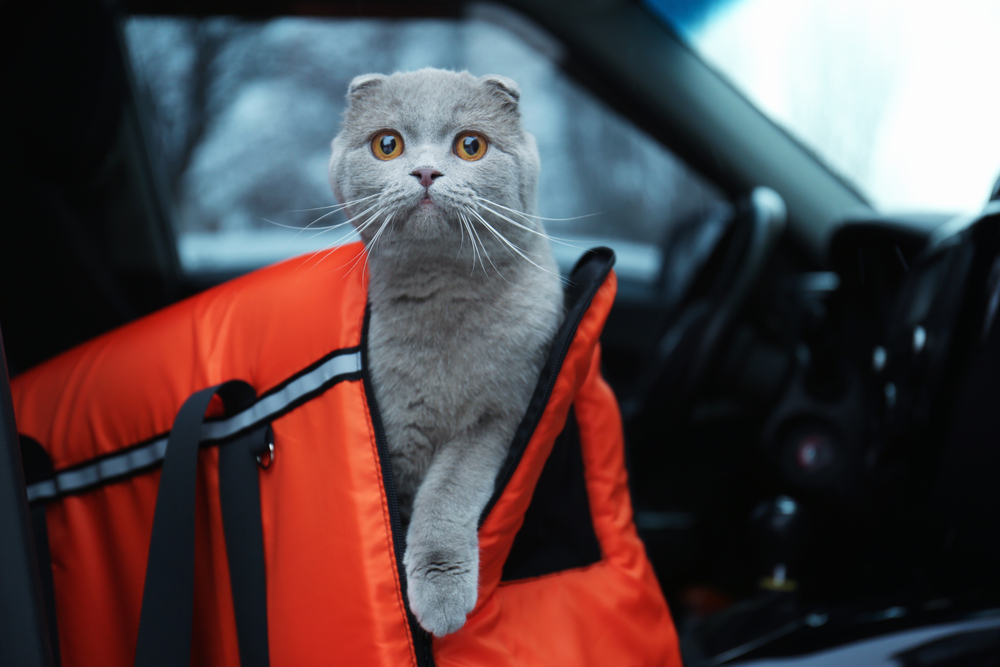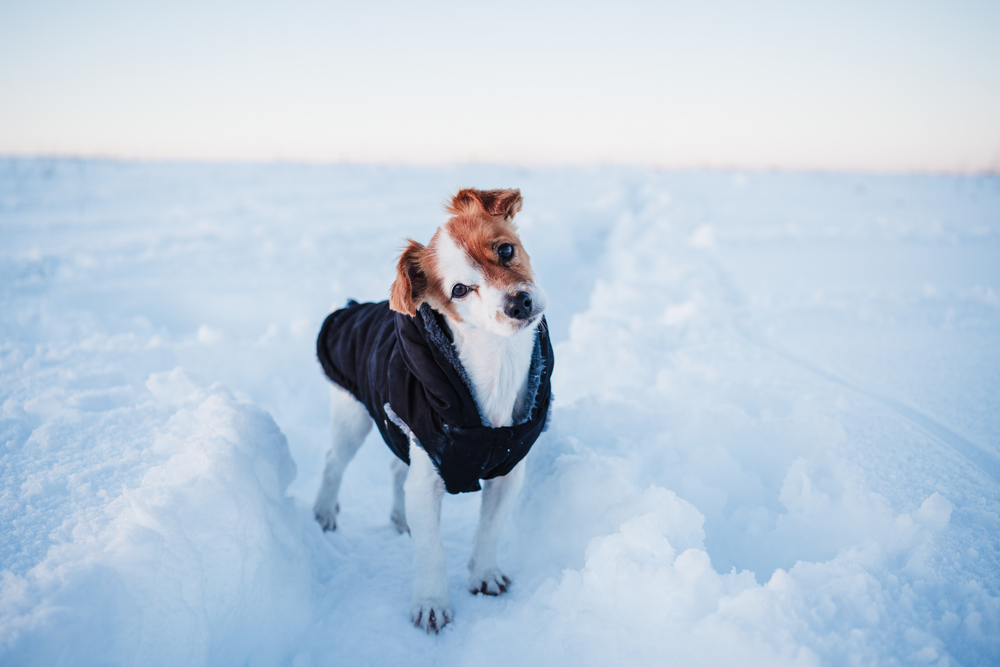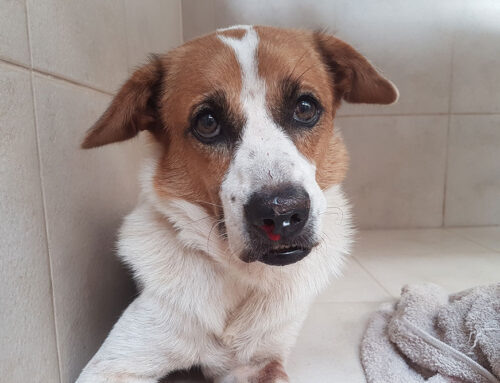Ontario residents are no strangers to extremely cold temperatures. Cold weather poses risks to people and pets. Your pet doesn’t understand the many cold weather hazards, and your responsibility is to ensure they stay safe, no matter the temperature. To underscore the importance of protecting your furry friend when the temperature drops, our North Waterloo Veterinary Hospital team refutes common cold weather pet safety misconceptions.
MYTH #1: My pet will not get cold because they have fur
FACT: While some breeds have a higher cold tolerance, a pet’s cold weather tolerance varies, depending on various factors, including:
- Coat — Thick-coated or long-haired pets can handle colder temperatures better than their short-haired counterparts. Pets with fine fur or short hair can become extremely cold much quicker.
- Weight — While excess fat can be unhealthy, pets who have extra body fat may stay warmer outside than thinner pets, because fat provides an added insulation layer. Pets with low body fat have a more difficult time regulating their body temperature
- Body type — Height plays a role in pets’ body temperature regulation. Short-legged breeds, such as basset hounds and corgis, may become colder more quickly because their bodies are lower to the ground, and more likely to come in contact with the snow.
- Age — As do humans, very young and senior pets have a more difficult time regulating their body temperature than healthy adult pets.
- Health — Pets with heart or kidney disease, or endocrine disorders may have a more difficult time regulating their body temperature.
Many pets start to get chilly when the temperature dips below 7.2 degrees Celsius. Once the temperature drops below freezing, all pets have cold-related health condition risks, and you should prevent your furry pal from being exposed to severe weather conditions for a prolonged period.
MYTH #2: Pet jackets are a fashion accessory
FACT: While some pet owners loathe the idea of dressing their furry pal in apparel, they may want to rethink their position when the temperature begins dropping. Pet jackets are more than stylish, they are beneficial, providing necessary warmth when out in cold weather. A jacket insulates a cold-intolerant pet, and shields them from the windchill. A jacket can also protect your pet from snow, sleet, or rain, helping keep them dry. Before choosing your pet’s jacket, measure them to ensure the garment will fit correctly. Your pet’s jacket should fit snugly around their chest without restricting their breathing or mobility.
MYTH #3: Pets do not have a frostbite risk
FACT: Similar to people, pets are also susceptible to developing frostbite from prolonged frigid temperature exposure. Frostbite occurs when a pet’s blood vessels constrict to redirect blood from the extremities to warm and protect vital organs, including their brain, lungs, and heart, making their nose, tail, ears, and paws most susceptible to tissue damage. Protect your pet from frostbite by limiting their time outdoors. Initial frostbite signs can be difficult to identify, and may take days to appear. Signs may include:
- Pale or bluish-white skin that later becomes red and puffy
- Red or gray-tinged skin on the ears, tail, or nose
- Brittle or shriveled skin that stays cold to the touch
- Pain in the ears, tail, paws, or nose when touched
- Ice crystals in or around the nose
If your pet shows frostbite signs, immediately cover the affected areas with a warm dry towel or blanket. Contact our North Waterloo Veterinary Hospital team to help determine whether your pet has any long-term effects that may need treatment.
MYTH #4: My pet will be safe alone in the car for a short time

FACT: Most people recognize that leaving their pet unattended in a vehicle when the weather is hot is deadly, but cold weather can be equally dangerous for pets. Vehicles have little insulation and do not protect your pet from frigid temperatures. A pet left unattended in a vehicle can quickly develop hypothermia. No matter the temperature, the best choice is to leave your pet safe at home while you run errands.
Cold weather can be dangerous for your pet. Ignore the myths, and take precautions to ensure your furry pal stays safe and warm this winter. If your pet suffers a cold weather-related accident, or they are due for their annual wellness exam, schedule an appointment with our North Waterloo Veterinary Hospital team.







Leave A Comment